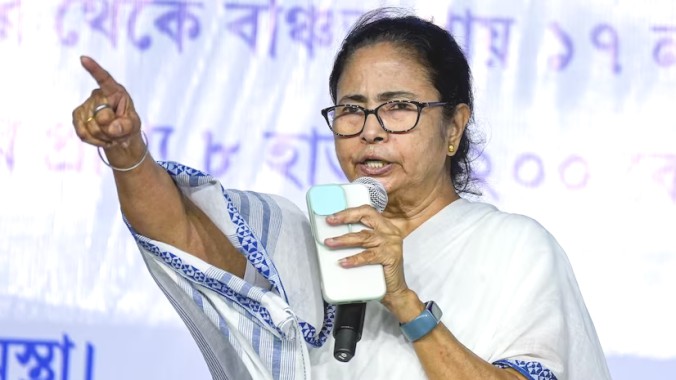




















Friday, Feb 07, 2025 08:15 [IST]
Last Update: Friday, Feb 07, 2025 02:50 [IST]
DARJEELING,: West Bengal Chief Minister Mamata
Banerjee’s announcement at Bengal Global Business Summit (BGBS) regarding the
diversion of 30% of tea garden land for non-tea purposes has sparked widespread
criticism in Darjeeling and North Bengal.
In a press release, Saman Pathak,
president of the CPIM-affiliated Darjeeling District Chiyaa Kaman Mazadur
Union, condemned the decision, calling it “extremely dangerous and fatal” for
the tea industry.
“The tea industry is the backbone of the
economy in Darjeeling and North Bengal. Allowing 30% of tea garden land for
commercial use will have disastrous consequences. The previous government
policy permitting 15% of land for tourism had already altered the demography of
tea gardens. Doubling this percentage is unacceptable,” Pathak stated.
He also highlighted that tea garden
workers, despite residing there for over a century, have not been granted land
ownership. “The real motive behind the five-decimal land survey is now
clear—this is an attempt to evict permanent tea garden residents and hand over
land to capitalists and traders for exploitation. We strongly oppose this move
and urge all trade unions to unite in protest,” he added.
BJP Darjeeling MP Raju Bista warned that
the policy could leave indigenous communities –including the Gorkhas, Adivasis,
Rajbangshis, Rabha, Koche, Meche, Toto and Bengalis –homeless.
“This decision is extremely dangerous.
Tea tourism has already led to the construction of luxury hotels and resorts on
lands cultivated by tea workers for generations. Now, the State government
wants to further commercialize these lands for real estate development. This is
deeply worrying,” Bista said.
He further accused the State government
of a history of repressing tea garden workers, citing incidents like Margaret’s
Hope, where workers were attacked for demanding fair wages, and Chandmuni,
where 15,000 people were forcibly evicted for the Uttarayon project without
rehabilitation or compensation.
“If this 30% land diversion policy is
implemented, it will mark the end of the tea industry, allowing real estate to
take over. After tea garden workers, cinchona garden workers, who have also
been denied ancestral land rights, may face similar displacement,” Bista
warned.
He also criticized Banerjee for making
this decision without consulting tea garden workers or elected representatives,
urging her to withdraw the policy to avoid mass protests.
The Indian Gorkha Janshakti Front (IGJF)
also expressed strong opposition in a letter to the Chief Minister.
IGJF chief convenor Ajoy Edwards stated,
“While the government is facilitating land ownership for businesses and
industries, the indigenous Gorkha and Adivasi communities of Darjeeling,
Kalimpong, Dooars and Terai, who have worked in these tea gardens for
generations, are only being offered up to five decimals of land with homestead
patta.”
“This decision is deeply unjust and
fails to recognize the historical, cultural and rightful claims of the
indigenous residents of these regions. The tea garden workers and their
families have been the backbone of the tea industry for centuries, yet their
fundamental right to land ownership continues to be overlooked in favour of
commercial interests,” he added.
Edwards demanded that land distribution
be based on physical possession, granting full ownership rights to indigenous
residents. He urged the Chief Minister to amend the West Bengal Land Reforms
Act if necessary to ensure justice.
“Our people will not accept anything
less than full land ownership rights, and we remain committed to advocating for
justice,” he said.
Without naming Mamata or making any
verbal reference to the Chief Minister’s announcement, Bharatiya Gorkha
Prajatantri Morcha (BGPM) president Anit Thapa said, “There are many issues
related to the tea gardens like parja patta which the people failed to
understand. I am firm in the demand I have made that the tea garden workers
should get whatever land that belongs to them. It was me who started the
process for this.”
Addressing a program at Gauri Shankar in
Kurseong, Thapa said, “We know that the tea garden belongs to the people here.
These are the places that are surrounded by nature and people come to see it. I
know that we have to save it. The government might make a policy but if I feel
that I do not like it, I will speak against it. If they try to make big
properties in the tea gardens, then I will raise an objection as I know I have
to save the hills,” said Thapa. “I will not agree to everything the government
says; I will raise the voice of the people.”
